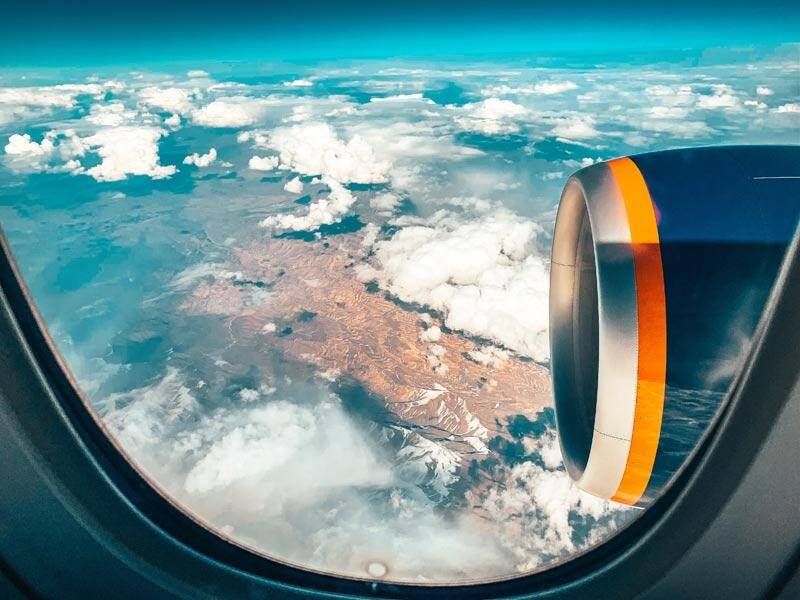Check if you need a visa. Depending on your nationality you can get a visa on arrival, or you can apply for your prearranged visit visa from Dubai Immigration before you travel.
There may be specific departure requirements in your country before you leave. Check the information on our Travel Requirements page.
Requirements for all passengers arriving in Dubai
All passengers travelling to Dubai from any point of origin (GCC countries included) must hold a negative COVID‑19 PCR test certificate for a test taken no more than 72 hours before departure, except for travel from Afghanistan, Bangladesh, Indonesia, India, Pakistan and Sri Lanka (for which specific requirements are stated above). Please see the requirements for travel from India below.
The certificate must be a Polymerase Chain Reaction (PCR) test. Other test certificates including antibody tests, Rapid PCR tests and home testing kits are not accepted in Dubai. Travellers must bring an official, digital or printed certificate in English or Arabic to check in – SMS certificates are not accepted. PCR certificates in other languages are acceptable if they can be validated at the originating station. Digital COVID‑19 certificates are accepted upon arrival at Dubai International airport verification points.
COVID‑19 PCR test certificates must be issued by an authorised facility in the passenger’s departure country. Certificates that have already been presented for travel to another destination can’t be used for re‑entry even if they are still within the validity period.
For passengers arriving from the following countries, it is mandatory that the COVID‑19 PCR report includes a QR code linked to the original report for verification purposes. The QR code must be presented at check‑in and to representatives of the Dubai Health Authority (DHA) upon arrival in Dubai airports: Bangladesh, India, Islamic Republic of Pakistan, Sudan, Sri Lanka, Lebanon, and effective 9 May, Egypt and Ethiopia.
Test on arrival
Passengers arriving in Dubai from the following countries will be required to take another COVID‑19 PCR test on arrival at Dubai International airport:
Afghanistan, Angola, Argentina, Bahrain, Bangladesh, Bosnia & Herzegovina, Brazil, Cambodia, Chile, Croatia, Cyprus, Djibouti, Egypt, Eritrea, Ethiopia, Georgia, Ghana, Guinea, Hungary, India, Indonesia, Iran, Iraq, Israel, Ivory Coast, Jordan, Kenya, Kuwait, Kyrgyzstan, Lebanon, Malta, Moldova, Montenegro, Morocco, Myanmar, Nepal, Oman, Pakistan, Poland, Philippines, Qatar, Rwanda, Russia, Senegal, Slovakia, Somaliland, Somalia, South Sudan, Sudan, Syria, Tajikistan, Tanzania, Tunisia, Turkey, Turkmenistan, Ukraine, Uzbekistan, Zimbabwe.
Transiting in Dubai
All passengers who have started their journey in Afghanistan or Indonesia and are transiting through Dubai must have a negative COVID‑19 Polymerase Chain Reaction (PCR) test certificate for a test taken no more than 48 hours before departure. The test certificate must include a QR code.
Passengers transiting through Dubai from the following countries are required to present a negative COVID‑19 PCR test certificate for a test taken no more than 72 hours before departure, as well as to follow any requirements mandated by their final destination.
Angola, Argentina, Bahrain, Bosnia & Herzegovina, Brazil, Cambodia, Chile, Croatia, Cyprus, Djibouti, Egypt, Eritrea, Ethiopia, Georgia, Ghana, Guinea, Hungary, Iran, Iraq, Israel, Ivory Coast, Jordan, Kenya, Kuwait, Kyrgyzstan, Lebanon, Malta, Moldova, Montenegro, Morocco, Myanmar, Nepal, Oman, Poland, Philippines, Qatar, Rwanda, Russia, Senegal, Slovakia, Somaliland, Somalia, South Sudan, Sudan, Syria, Tajikistan, Tanzania, Tunisia, Turkey, Turkmenistan, Ukraine, Uzbekistan, Zimbabwe.
The certificate must be a Polymerase Chain Reaction (PCR) test. Other test certificates including antibody tests and home testing kits are not accepted in Dubai. Travellers must bring an official, digital or printed certificate in English or Arabic to check in – SMS certificates are not accepted. PCR certificates in other languages as required by the final destination are acceptable if they can be validated at the originating station.
Passengers from all other countries do not need a COVID‑19 PCR test to transit in Dubai, unless it’s required by their final destination.
Test exemptions:
- UAE nationals are exempt from taking a COVID‑19 PCR test before departing for Dubai. They must be tested on arrival in Dubai, irrespective if they are holding a valid negative COVID‑19 PCR certificate from the point of origin.
- Children under the age of 12 and passengers who have a moderate or severe disability are exempt from taking a COVID‑19 PCR test.
- Moderate or severe disability includes neurological disorders and intellectual or developmental disabilities. For example: Acute spinal cord injury, Alzheimer’s disease, Amyotrophic lateral sclerosis (ALS), Ataxia, Autism spectrum, Bell’s palsy, Brain tumours, Cerebral aneurysm, Cerebral palsy, Down Syndrome, Epilepsy and seizures
- All other passengers, including those who are visually impaired, hearing impaired or physically challenged must hold a negative COVID‑19 PCR test certificate as per the requirements.
- There may be specific test exemptions in your country of origin and final destination. Please check the requirements before you travel.
COVID‑19 testing laboratories:
- The UAE government has specified designated laboratories. You can either use the recommended laboratories in the list or any trusted and certified laboratories in your country of origin to get your COVID‑19 PCR test.
- If you are flying from India, Pakistan, Nigeria or Bangladesh , you must get your certificate from one of the labs listed in the designated laboratories document to be accepted on the flight.
When you arrive
- You may need to take another COVID‑19 PCR test on arrival. If you take a test at the airport, you must remain in your hotel or residence until you receive the test result.
- If the test result is positive, you will be required to undergo isolation and follow the Dubai Health Authority guidelines.
- You must also download the COVID19 – DXB Smart App iOS‑Android

